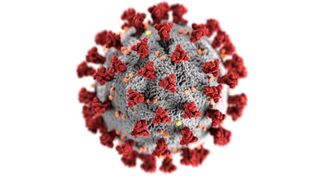Health
Lessons for Living Through the COVID-19 Pandemic
HIV-AIDS taught us that silence = death, and information = power.
Posted March 12, 2020 Reviewed by Matt Huston
Picture this: It’s 1985. You’re a young gay man, living in Washington, DC.
AIDS has been all over the news since the actor Rock Hudson went public with his own diagnosis in July—and died in October. A new test to determine whether you have been exposed to HIV has just become available, although even the AIDS organizations are advising against taking it because no one yet knows what a positive result means.
Every morning you look up above the escalators going down into the Metro station at Dupont Circle and check the latest tally of AIDS deaths flashing across the ticker board—like a silent bell tolling across the gayest neighborhood in the city, reminding you that a deadly virus is on the loose, killing people, mostly other gay men, right there in your own neighborhood.
On the streets you see guys you knew from the gym, muscle boys now looking like shriveled old men, their faces polka-dotted with the purple lesions of Kaposi’s sarcoma.
You see more and more of their obituaries each week in the Washington Blade, the city’s LGBTQ newspaper and the most reliable source of information about the growing HIV pandemic.
The virus haunts your intimate moments, each coupling now an unwelcome and terrifying ménage á trois with one of the three not even visible and yet dominating the exchange, standing between the ecstasy of sex and the precipice of potential death.
Posters, flyers, and newspaper ads yell at you to protect yourself and your partners against the deadly microbe. Most heed the warnings; many do not.
And the Blade publishes yet more obituaries.

It’s a frightening experience to live through a deadly viral pandemic, especially one as lethal as HIV. But an important lesson from the HIV pandemic is that it is not only possible, but imperative, to get on with your life even as you practice the safety precautions that credible public health experts recommend.
In the case of the novel coronavirus now spreading across the world and throughout America, it’s particularly important to follow the Centers for Disease Control and Prevention (CDC) recommendations—including regular hand-washing, disinfecting frequently used surfaces, and ‘social distancing’ from people who are sick or crowds in which the virus can more easily be transmitted.
Something we learned in the HIV-AIDS pandemic that is highly relevant to the outbreak of the novel coronavirus: Words matter. Facts matter. It matters how we talk about something like a virus, the illness it causes, and those affected by it.
We learned that silence (and ignorance) equals death—and information equals power. Armed with fact-based information, we are best prepared to address the challenges that will lie ahead for many of us.
As the World Health Organization makes clear in its recommendations, it’s not useful to talk about a “plague,” and COVID-19 is not a “Chinese” or “Asian” disease. People diagnosed with the virus are not “vectors” or “carriers”—they are people first and foremost. "Stigma can undermine social cohesion and prompt possible social isolation of groups, which might contribute to a situation where the virus is more, not less, likely to spread," the WHO says.
The first people diagnosed with HIV-AIDS—openly, proudly gay men—understood that words and language can make all the difference between hope and despair, between fear-driven hatred and compassion. “We are people with AIDS,” they insisted, not ‘AIDS victims.'” HIV-AIDS was an illness they had; it was not who they are. Their humanity defined them, not their diagnosis.
We are susceptible to the novel coronavirus, and the multitudes of other microbes around us and within our bodies at any given moment, simply because we are fragile, physical humans living in a sometimes dangerous world—not because of our ethnicity, nationality, sexual orientation, skin tone, or any other immutable trait.
These five steps will help us get through our latest public health crisis:
- Stay informed about the novel coronavirus—it's the best defense against anxiety and to avoid 'groupthink' and hysteria;
- Practice the recommended safety precautions;
- Seek testing and treatment if you’re ill;
- Respect your own and others’ humanity if you or they become ill; and
- Use words and language that don’t stigmatize anyone.
There is no need to panic or catastrophize ("the end of the world is here!"), and there is no room for hysteria borne of ignorance. Remember: Information equals power. Take it from a formerly young gay man who, beginning in 1985, lived through the “dark years” of AIDS in our hard-hit nation’s capital.




